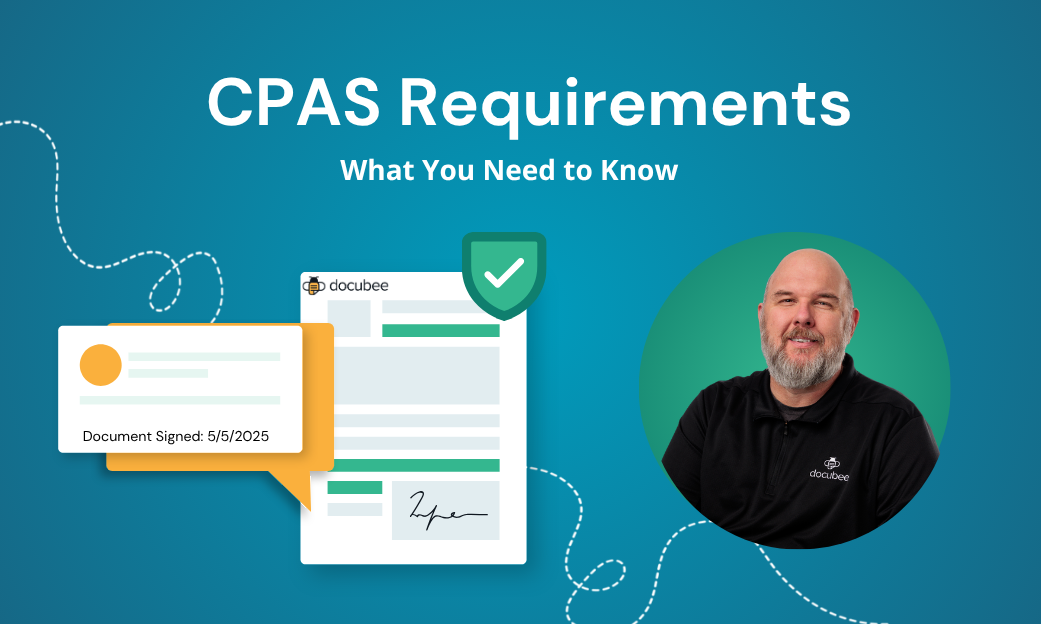Business contracts are legal documents with an important job to do. Yet, ensuring your contracts are performing in the best way possible isn’t always easy. Non-compliance with contractual obligations can expose your business to significant legal and financial risks, while inefficient or poorly written contracts can lead to financial losses and unproductive business practices. Conducting a contract audit can help you identify potential issues in your contract workflow, allowing you to implement effective solutions. Let’s dive in.
What is a Contract Audit, & Why Is it Important?
At its core, a contract audit is an assessment of the performance of a company’s contracts and how the parties have complied with contract standards. Auditing contracts offers valuable insight into the operational and financial performance of your agreements. By conducting contract audits and learning how contract automation tools can improve organizational efficiency, you can promote better contract management, build stronger partnerships, and ensure a predictable and consistent process each time.
What Are the Types of Contract Audits?
Different types of contract audits are used to examine various parts of a contract. Our beginner’s guide to contract automation can help you learn more about the intricacies of different contracts and ways to streamline your contract workflows.
The most commonly used contract audits investigate the financial, legal, and performance aspects of business contracts.
Compliance Audits
Compliance audits are used to assess the rules and regulations within contracts and how they’re being followed. Since this includes legal regulations and guidelines that can change frequently, compliance audits are simultaneously crucial and complex.
Cost Audits
As the name suggests, cost audits are designed to evaluate the pricing and cost information in your contracts. They can help you make sure business partners are charging you correctly and that you’re not overcharging or under-delivering to your clients.
Performance Audits
Performance contract audits delve into the terms and specifications of your agreements to make sure the terms are being followed accurately. These audits are useful for uncovering deviations from organizational performance standards.
Financial Audits
While cost audits examine the pricing information in contracts, financial contract audits review a company’s financial contracts to ensure compliance with regulatory compliance. These audits are designed to verify that financial transactions have been accurately recorded and reported. They can uncover discrepancies and help you identify areas for improvement.
What Are the Biggest Challenges with Conducting a Contract Audit?
Auditing contracts is essential, but the process can be time-consuming and include several challenges. Luckily, the right software can provide solutions to these challenges.
Challenge #1: Incomplete or Inaccurate Records
One of the first steps in a contract audit is locating and accessing relevant files. If records are inaccurate or incomplete, you’re far less likely to achieve the goals of your audit.
All too often, contracts are stored in different files and folders, making them difficult to find and categorize. Centralized storage can help you eliminate this concern. Contract management software, like Docubee, allows users to store contracts in a secure cloud-based platform for easy accessibility and tracking. This convenient storage option is one of the top advantages of contract management automation software.
Challenge #2: Non-compliance with Contract Terms
Manually auditing contracts requires you to read each contract individually and decode complex legal language to ensure terms are being followed properly. If you encounter non-compliance issues, the audit timeline can be further prolonged.
Managing regulations can be difficult when various individuals draw up contracts manually. Using contract management templates will allow you to standardize contract terms to eliminate uncertainty and reduce non-compliance. Additional features like built-in alerts and notifications remind users what actions need to be taken next, so you can keep up with your obligations.
Challenge #3: Misallocation of Costs
Manually creating documents requires manual data entry. A single typo or misunderstanding can dramatically change the cost information in a business contract.
Digital contract management can address common cost audit issues. Automated document generation eliminates manual entry, helping teams avoid errors when entering terms and values. Digital storage provides easy access to your entire contract history, making it easy to highlight all changes to financial data over time.
Challenge #4: Fraud and Misrepresentation
Customer satisfaction relies heavily on meeting customer expectations. Performance audits that reveal fraud and misrepresentation mean you’re not delivering on the promises you make to your customers, putting you at risk for legal repercussions.
Automated reporting is the ideal way to avoid surprises during performance audits. When you invest in a digital contract management solution that automatically routes documents to relevant parties, contract information can be routinely reviewed to avoid potential discrepancies.
Make Contract Audits Easier with Docubee
With so much at stake, it’s no wonder that companies dread contract audits. Sorting through hundreds or thousands of documents, reviewing each contract with a fine-toothed comb, and extracting and documenting relevant data is an overwhelming and time-consuming process to complete manually.
Luckily, you don’t have to manage and audit your contracts manually. Docubee’s contract management software simplifies the process by securely managing your contracts and ensuring they’re up-to-date with the latest regulations and laws.
Features allow you to securely store contracts in one place, engage with user-friendly search functions to find the documents you need, and use templates to create accurate contracts. Schedule a demo to learn how automated contract management from Docubee can streamline your contract audits.
FAQs Related to Conducting Contract Audits
What do contractor audits typically include?
Contractor audits include an initial plan and final plan of record, a root cause of analysis to identify underlying reasons for deviations, technical audits, and surveys. These components provide a comprehensive review covering financial, operational, technical, and performance aspects to ensure adherence to standards and identify areas of improvement.
How long does a contract audit take?
The time required for a contract audit depends on the size and complexity of the documentation involved. Time requirements can range from a couple of days to several weeks.
How often should contract audits be conducted?
Contract audits should ideally be conducted annually to ensure ongoing compliance and catch discrepancies early. However, the frequency can vary depending on the complexity of contracts, industry regulations, and organizational policies. Routine audits help maintain accountability and mitigate potential risks.












